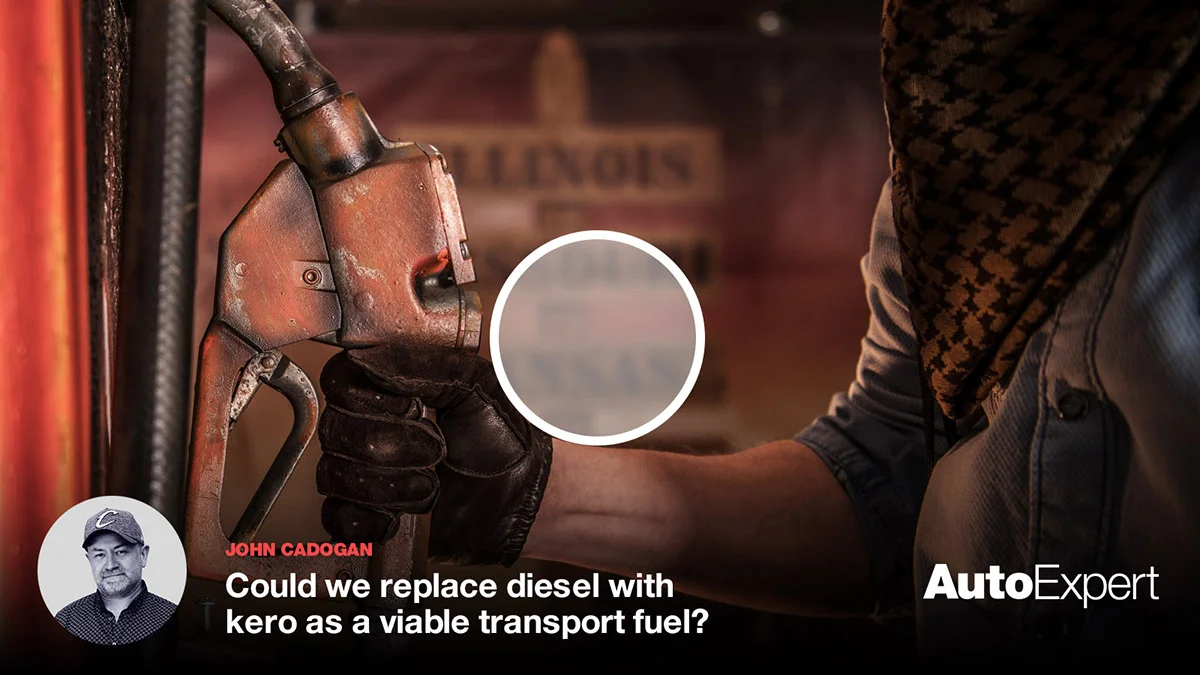Could we replace diesel with kerosene as a fuel, and would it be cleaner?
Why don’t we go 100 per cent ‘bush mechanic’ and run our diesel cars on kerosene? That’s a question from you - well, one of you at least.
Let’s find out.
“Diesel and kerosene are very similar. I was wondering if kerosene would be a cleaner alternative for diesel engines. Some diesels already can run on kerosene now.” - Karl P
This is less a question about what fuel we could use - technically, hypothetically - in a diesel engine and more about what crude oil actually is, and how that affects supply and demand.
So, basically, crude oil is a cocktail of all these different hydrocarbons and impurities and essentially what they do in a refinery is separate the components into categories by boiling them off. They boil at different temperatures, conveniently enough.
If you’re a full-on petrochemical engineer - this will be somewhat simplistic. I know there’s mad destructive distillation voodoo - catalytic cracking - and other implements of the devil on the table and you can tweak the refinery products - to a degree.
If you are that dude - nothing I say here will inform you.
Refining crude oil: What you get
But for the rest of us, the crude cocktail components that become gasoline boil off between about 30 and 85 degrees C - so they heat crude in that range, the gasoline boils off, they collect the vapours: gasoline.
Higher temperatures get you kerosene, jet fuel, diesel, fuel oil, etc. More detail here >>
Below: Click to enlarge
So, you start with a barrel of crude - that’s 159 litres, 42 US gallons, and you get about 74 litres of gasoline. That’s just under half.
We use gasoline on the road because A) it’s a good fuel, and B) there’s so much of it in every barrel of crude.
You also get about 35 litres of diesel and diesel-like fuel (like home heating oil) - that’s about a quarter. And we use diesel because there’s so much of it in every barrel. It’s not like there’s a choice.
And the next big product is kerosene and kero-related products, like jet fuel - you get about 15.5 litres of kero per barrel. That’s about one-tenth of a barrel. So there’s a lot less kero in every barrel, compared with the other two.
Those three - gasoline, diesel and kero - are 124 litres out of 159. Everything else, from butane to bitumen, lubricants, chemical feedstocks, coke, comprises about the remaining quarter of the barrel.
Processing gain
Interestingly enough, you start with about 159 litres of crude and you get about 169 litres of petroleum products. But sadly it’s not magic - it’s just refinery processing gain, a function of the products having a lower specific gravity than the crude oil you started with. Damnit. Good summary on this here >>
What you have to realise is that to some extent engines are designed around the fuels we can actually extract from crude oil, and the volumes of those fuels that are accessible.
If you said: ‘Hey, I’ve got this great idea. Let’s bone diesel and run all former diesels on kero.’ Then I think we’d have a few problems.
Logistics of kerosene
Such as, the demand for kero would go through the roof. The price would skyrocket. Everything moved from A to B by truck would get more expensive. And so would air travel.
We’d have to refine a shitload more crude oil to satisfy demand, and come up with an alternative use for roughly a quarter of every barrel that currently comprises diesel … even if that use was to convert it destructively into kerosene.
You can’t just throw away a quarter of every barrel because you had a thought bubble that using kero is a better idea.
I guess we could convert diesel to kero using kooky carbon chemistry, but inconveniently, there’s the second law of thermodynamics, which says: diesel converted to kero contains less energy than the diesel you start with - because that’s the dodgy way God designed the universe. Which is to say: Badly.
(Don’t get me started on heat death. The arrow of time. Bastard.)
And of course we’d need to design a whole new category of automotive engines optimised around kerosene. Which seems like a lot of work. And develop a set of standards for automotive kerosene. And reinvent every filling station on earth. Let’s not forget that.
Conclusion
So, I’d suggest running internal combustion engines on kerosene is an interesting thought experiment. Could we do it? Yeah. Almost certainly. It might be cleaner than diesel.
Would kero ever viably replace diesel out there on the road? No - it’s not available in sufficiently large quantities. There’s only 10 litres of it in every barrel.
And of course, getting it done would be harder than achieving peace in the former Mess o’ Potamia. Where much of the world’s crude oil is still problematically located.
So there’s that.






